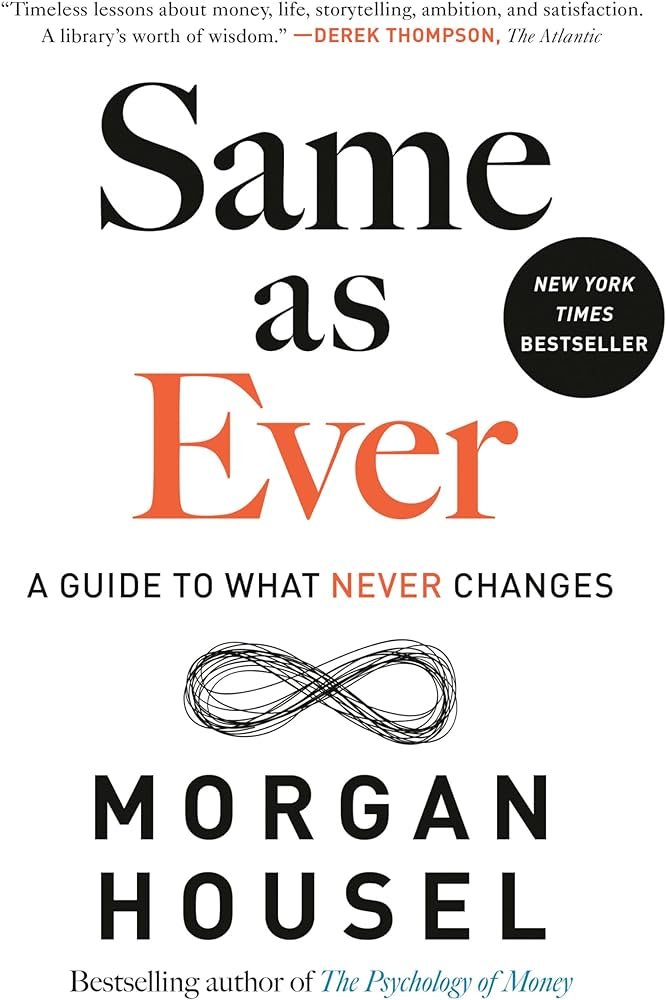Same as Ever by Morgan Housel
Date read: 1/29/24. Recommendation: 8/10.
People are obsessed with trying to predict the future. In Same as Ever, Morgan Housel cautions us against trying to predict specific events and instead focus on predicting people’s behaviors, which have remained the same for thousands of years. We still respond to fear, greed, uncertainty, and social persuasion in the same ways that we always have. If we want to understand a rapidly changing world, it’s far more effective to focus on what stays the same. Each of the 23 short stories in this book offers a different framework to help us understand risks, consider opportunities, and build more meaningful lives. We would all benefit from spending more time reflecting on the wisdom we’ve earned through our past.
Check out my notes below or Amazon for details and reviews.
My Notes:
Focus of the book:
Base predictions on people’s behaviors, not specific events. “Predicting what the world will look like fifty years from now is impossible. But predicting that people will still respond to greed, fear, opportunity, exploitation, risk, uncertainty, tribal affiliations, and social persuasion in the same way is a bet I’d take.” Morgan Housel
In victory, know when to stop:
“An important life skill is getting the goalpost to stop moving. It’s also one of the hardest.” Morgan Housel
Moderation:
“Money buys happiness in the same way drugs bring pleasure: incredible if done right, dangerous if used to mask a weakness, and disastrous when no amount is enough.” Morgan Housel
Challenging assumptions:
“You gotta challenge all assumptions. If you don’t, what is doctrine on day one becomes dogma forever after.” John Boyd
Evaluate probabilities and play to the 51%:
“Most people get that certainty is rare, and the best you can do is make decisions in which the odds are in your favor….But few people actually use probability in the real world, especially when judging others’ success.” Morgan Housel
Uncertainty blinds us:
People claim they want an accurate understanding of the future. But this is a lie. They want certainty. And they will ignore reality to get here.
“We need to believe we live in a predictable, controllable world, so we turn to authoritative-sounding people who promise to satisfy that need.” Morgan Housel
Patience + scarcity:
“Most great things in life—from love to careers to investing—gain their value from two things: patience and scarcity. Patience to let something grow, and scarcity to admire what it grows into.” Morgan Housel
It’s supposed to be hard:
Pain is a necessary, important part of life. The more you come to accept this, rather than always seeking shortcuts, the better off you’ll be.
Seinfeld on getting asked if he could have outsourced writing to a consulting company like McKinsey to keep the show going: “If you’re efficient, you’re doing it the wrong way. The right way is the hard way. The show was successful because I micromanaged it—every word, every line, every take, every edit, every casting.”
“If you can get your work life to where you enjoy half of it, that is amazing. Very few people ever achieve that.” Jeff Bezos
Margin of safety:
“The purpose of the margin of safety is to render the forecast unnecessary.” Benjamin Graham


